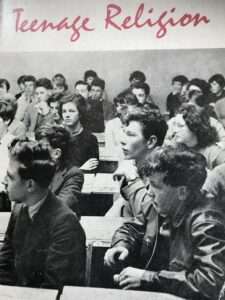Reg was born at the turn of the century, at the turn of the Twentieth Century. Born in 1900, he was still working at the Kelway’s nursery in Langport when I spent the summers of 1978 and 1979 there as a casual worker.
Reg worked in the glasshouses, spending his days caring for the delicate plants near which no members of the casual staff would have been allowed. As we passed the greenhouses, where the ageing nurseryman worked quietly by himself, a friend who worked with me during those summers would remark, in bad mock Latin, “Reg in greenhouse est.” It never failed to make me smile, such is the sense of humour of eighteen year old boys.
Reg rode a heavy black bicycle from his home, no more than a mile from the nursery. The same bicycle had probably travelled those roads for sixty years or more. Quietly spoken, always good humoured, Reg had seen enough of history to be unworried by anything that might have happened in the 1970s.
Two world wars had come and gone during Reg’s lifetime. He had laboured on the land through both of them, but could readily recall those from his neighbourhood who had served in armed forces and never returned. The names on the parish war memorial from both of the world wars were the names of men Reg had known. The Fallen of the Great War, who remained only in sepia photographs on cottage sideboards, were those among whom he had passed his boyhood years.
A healthy complexion and solid frame gave Reg an appearance that belied his age, not that an eighteen year old would have had much idea of what someone of Reg’s age might have looked like, he was a decade or more older than my grandparents. Reg was fit and healthy and independent, and probably worked harder than many men who were decades younger than him.
In the mind of a casual worker who worked alongside him for two summers, Reg created the impression that it was possible to live forever, or, if not forever, for so long that you could remember all of the important events in the history of the Twentieth Century. If you could be seventy-nine years old and still working, then someone sixty years your junior need have no fear of ever becoming old.
Four decades later, two decades short of Reg’s age during his greenhouse days, there is a sense of age accelerating. Perhaps the answer lies in slowing down and buying an old black bike.


